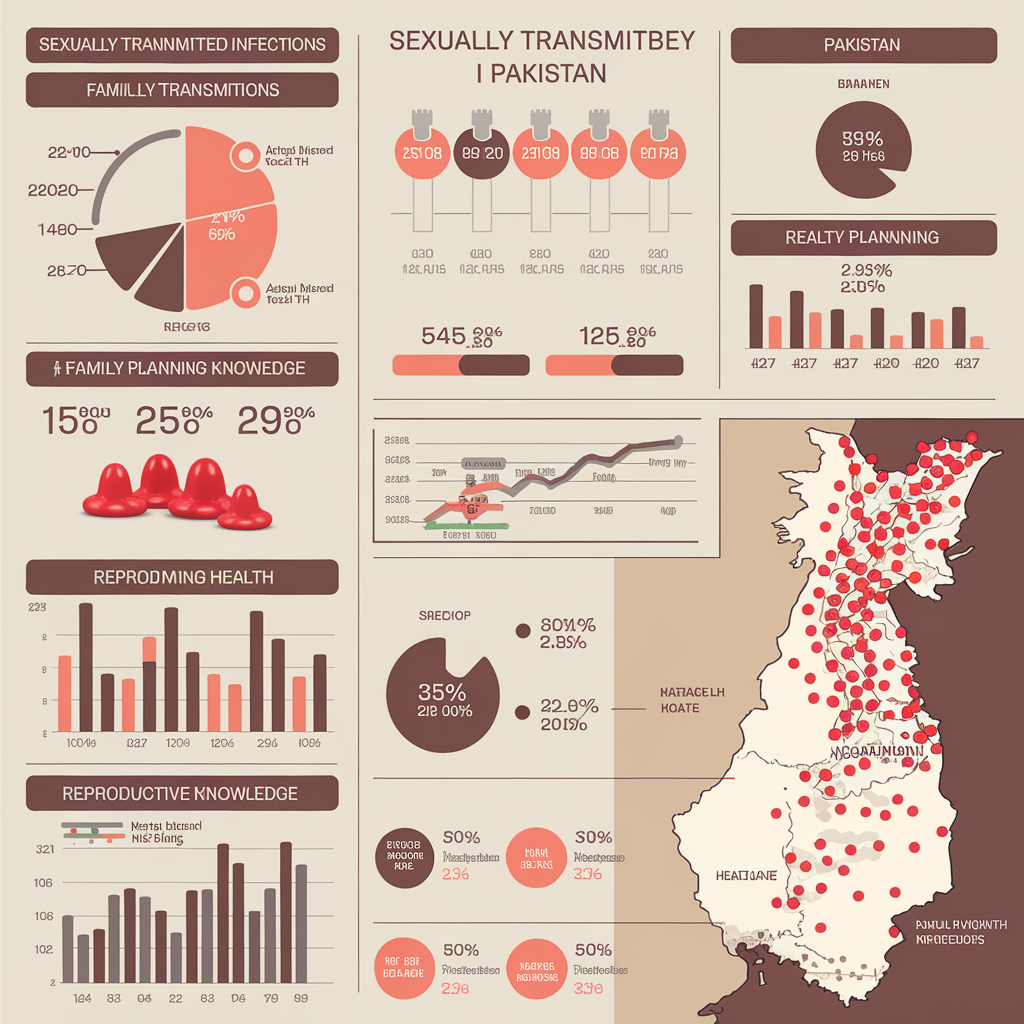
Sexual health in Pakistan is a complex issue influenced by cultural, religious, and socioeconomic factors. While significant progress has been made in certain areas, significant challenges persist, particularly for women and marginalized groups. This paper provides a comprehensive overview of the current state of sexual health in Pakistan, highlighting key issues and potential solutions.
Cultural and Religious Perspectives
Pakistan’s conservative culture and Islamic faith significantly shape societal attitudes towards sexuality. While Islam emphasizes the importance of marriage and chastity, it also acknowledges the natural aspects of human sexuality. However, cultural interpretations can often lead to restrictive norms, particularly for women.
Socioeconomic Disparities
Socioeconomic disparities play a crucial role in determining access to sexual health services and information. Individuals from lower socioeconomic backgrounds may face limited opportunities for education, healthcare, and contraception. This can lead to higher rates of unintended pregnancies, sexually transmitted infections (STIs), and unsafe abortions.
Key Issues
- Limited Access to Comprehensive Sexual Health Education: Many schools and communities lack comprehensive sexual health education programs, leaving young people ill-equipped to make informed decisions about their bodies and relationships.
- Stigma and Discrimination: Negative attitudes towards sexuality and reproductive health can hinder individuals from seeking help or discussing their concerns. This stigma can lead to discrimination and violence, particularly against women and LGBTQ+ individuals.
- Lack of Access to Contraception and Reproductive Health Services: Many women and girls lack access to contraception and reproductive health services, resulting in unintended pregnancies, unsafe abortions, and maternal mortality.
- Violence Against Women and Girls: Sexual violence, including rape and domestic abuse, is a serious problem in Pakistan. This violence can have devastating physical and psychological consequences for survivors.
Potential Solutions
- Promote Comprehensive Sexual Health Education: Implement comprehensive sexual health education programs in schools and communities to provide young people with accurate information about their bodies, relationships, and reproductive health.
- Challenge Stigma and Discrimination: Promote awareness of harmful stereotypes and discrimination related to sexuality and reproductive health. Encourage open dialogue and support for individuals who face stigma.
- Expand Access to Contraception and Reproductive Health Services: Increase the availability and affordability of contraception and reproductive health services, particularly for women and girls in rural areas.
- Strengthen Legal and Policy Frameworks: Enact and enforce laws that protect the rights of women and girls, including their right to sexual health and reproductive rights.
- Invest in Research and Data: Conduct research to better understand the specific needs and challenges related to sexual health in Pakistan. This data can inform policy development and program implementation.
Conclusion
Addressing the challenges of sexual health in Pakistan requires a multi-faceted approach that addresses cultural, religious, socioeconomic, and legal factors. By promoting comprehensive sexual health education, challenging stigma, expanding access to services, and strengthening legal frameworks, Pakistan can improve the sexual health and well-being of its citizens.
